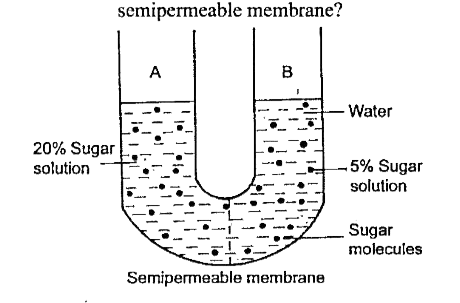Why is the plasma membrane called a selectively permeable membrane
Step-by-Step Solution:
1. Definition of Plasma Membrane: The plasma membrane, also known as the cell membrane, is a biological membrane that separates and protects the interior of the cell from the external environment.
2. Function of the Plasma Membrane: The primary function of the plasma membrane is to control the movement of substances in and out of the cell. This is crucial for maintaining the cell's internal environment and overall homeostasis.
3. Selectively Permeable Nature: The term "selectively permeable" refers to the ability of the plasma membrane to allow certain molecules to pass through while restricting others. This means that not all substances can freely enter or exit the cell.
4. Mechanism of Selectivity: The selectivity of the plasma membrane is due to its structure, which consists of a lipid bilayer with embedded proteins. The hydrophobic (water-repelling) nature of the lipid bilayer allows only small, nonpolar molecules (like oxygen and carbon dioxide) to pass through easily. Larger or polar molecules (like glucose or ions) require specific transport proteins to assist their movement across the membrane.
5. Importance of Selective Permeability: This selective permeability is essential for various cellular processes, including nutrient uptake, waste removal, and the maintenance of ion concentrations, which are vital for cell function and signaling.
6. Conclusion: Therefore, the plasma membrane is called a selectively permeable membrane because it selectively allows certain molecules to enter or exit the cell while blocking others, thus regulating the internal environment of the cell.
---
Topper's Solved these Questions
Similar Questions
Knowledge Check
An example of selectively permeable membrane is:
AplasmalemmaBcell wallCchloroplast membraneDmitochondrial membrane
Plasma membrane is
View SolutionState whether the following statement is true or false.
A membrane which allows certain substances to pass, but does not allow others to pass through it is called a selectively permeable membrane.
A. True
B. False
View SolutionExplain, how the plasma membrane is selectively permeable, and tell how that is related to the movement of materials across the membrane.
View SolutionA membrane which allows certain substances to pass through it, but not others is called a selectively permeable membrane.
View SolutionStudy the set-up given in the diagram and answer the following questions:

Why is the membrane called semipermeable membrane?
View SolutionThe plasma membrane is a fully permeable membrane.
View SolutionThe tendency of a solution to take up water when separated from pure water by a selectively permeable membrane is called the ................ of the solution
View Solution
